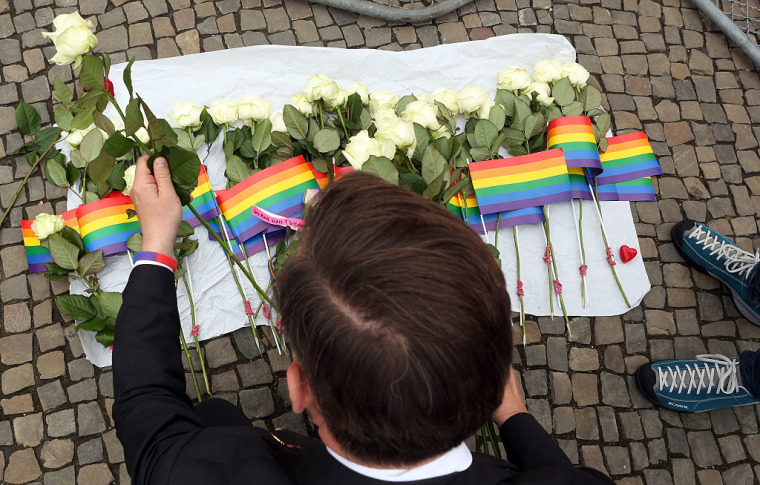The LGBTQ community is the most at-risk group for hate crime victimization in the United States, according to data from the Federal Bureau of Investigation. Of the 5,462 single-bias hate crime incidents in 2014, FBI data statistics show 18.6 percent were motivated by sexual orientation bias, and 1.8 percent were motivated by gender identity bias.
Ironically, recent advances in LGBTQ rights could be a contributing factor to violence against the community, said Emily Waters, a researcher with the New York City Anti-Violence Project, which has been tracking violence against the LGBTQ community for more than 20 years.
“We’ve seen over the course of the last year legislative backlash against LGBT people,” Waters explained.
Legislation that seeks to limit the rights of the LGBTQ people could also be a contributing factor to the community's vulnerability to hate crime victimization, Waters added.
“Over the course of the last six months there’s been over 200 bills that have been popping up in counties and states across the country that essentially say it’s okay to discriminate against people for sexual orientation and gender identity, and in some ways [that] incites a culture of violence against LGBTQ people."
Black and Hispanic transgender women are especially at risk for violence, and they are more likely to be victims of homicide than any other member of the LGBTQ community, according to the National Coalition of Anti-Violence Programs.
“Transgender women of color exist at the intersection of transphobia, racism and misogyny - at this intense place of multiple areas of biases. So they’re more likely to experience poverty, homelessness, and to engage in survival work,” Waters explained.
While hate crime legislation is important, according to Waters, she said it is not enough to protect LGBTQ people from the violence many experience on a daily basis.
“If we’re really going to address hate violence, we need to start understanding how homophobia, transphobia and biphobia permeate our everyday environments."

